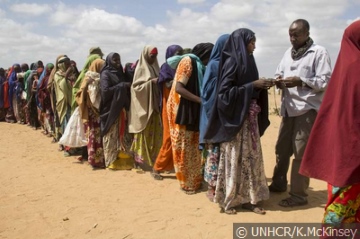UN issues practical and authoritative guidelines to ensure specific challenges faced by women in situations of displacement and statelessness are addressed
The United Nations Committee on the Elimination of Discrimination against Women (CEDAW) last week issued guidelines on the gender-related dimensions of refugee status, asylum, nationality and statelessness of women.
You can download the 20-page guidelines in Word format here.
 The United Nations says the practical and authoritative guidelines are designed to ensure that the specific challenges faced by women in situations of displacement and statelessness are addressed, and their rights are understood, applied and enforced.
The United Nations says the practical and authoritative guidelines are designed to ensure that the specific challenges faced by women in situations of displacement and statelessness are addressed, and their rights are understood, applied and enforced.
The guidelines recommend, for example, that States should ensure that women are able to lodge independent asylum applications and be heard separately, even if they are part of a family seeking asylum.
On trafficking, the guidelines recommend that States parties should recognise that trafficking is part and parcel of gender-related persecution, with the result that women and girls who are victims of trafficking or who fear becoming victims should be informed of and effectively enjoy the right of access to asylum procedures without discrimination or any preconditions.
In addition, the guidelines recommend that States parties should ensure that interviewers and decision makers at all levels have the necessary training, tools and guidance on the adjudication of gender-related asylum claims.
CEDAW says that in practice, gender-related forms of persecution are often assessed through the lens of male experiences, which can result in claims to refugee status not being properly assessed or even to rejection of claims.
UNHCR's Director of International Protection, Volker Türk, welcomed the guidelines, saying: "We see many cases of women who flee their countries and seek asylum as a result of widespread gender-based violence. This General Recommendation should assist countries on how to deal with these cases in a gender-appropriate way."